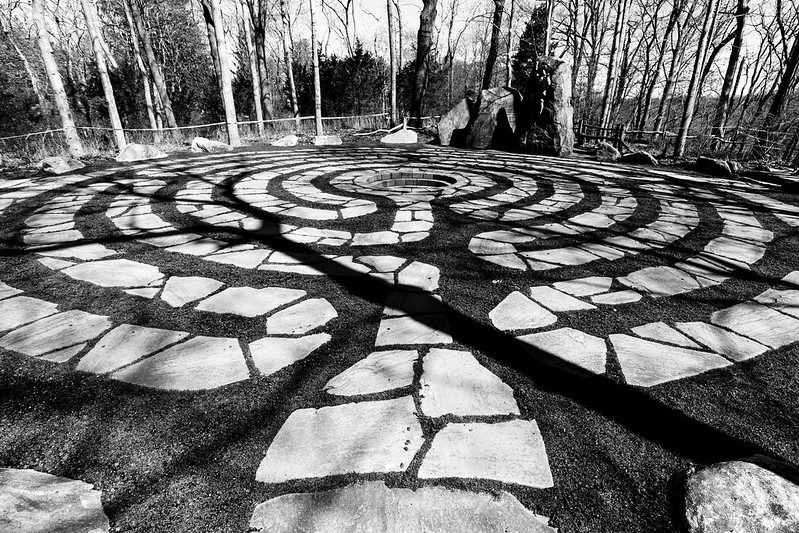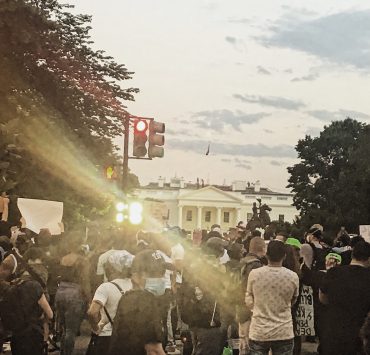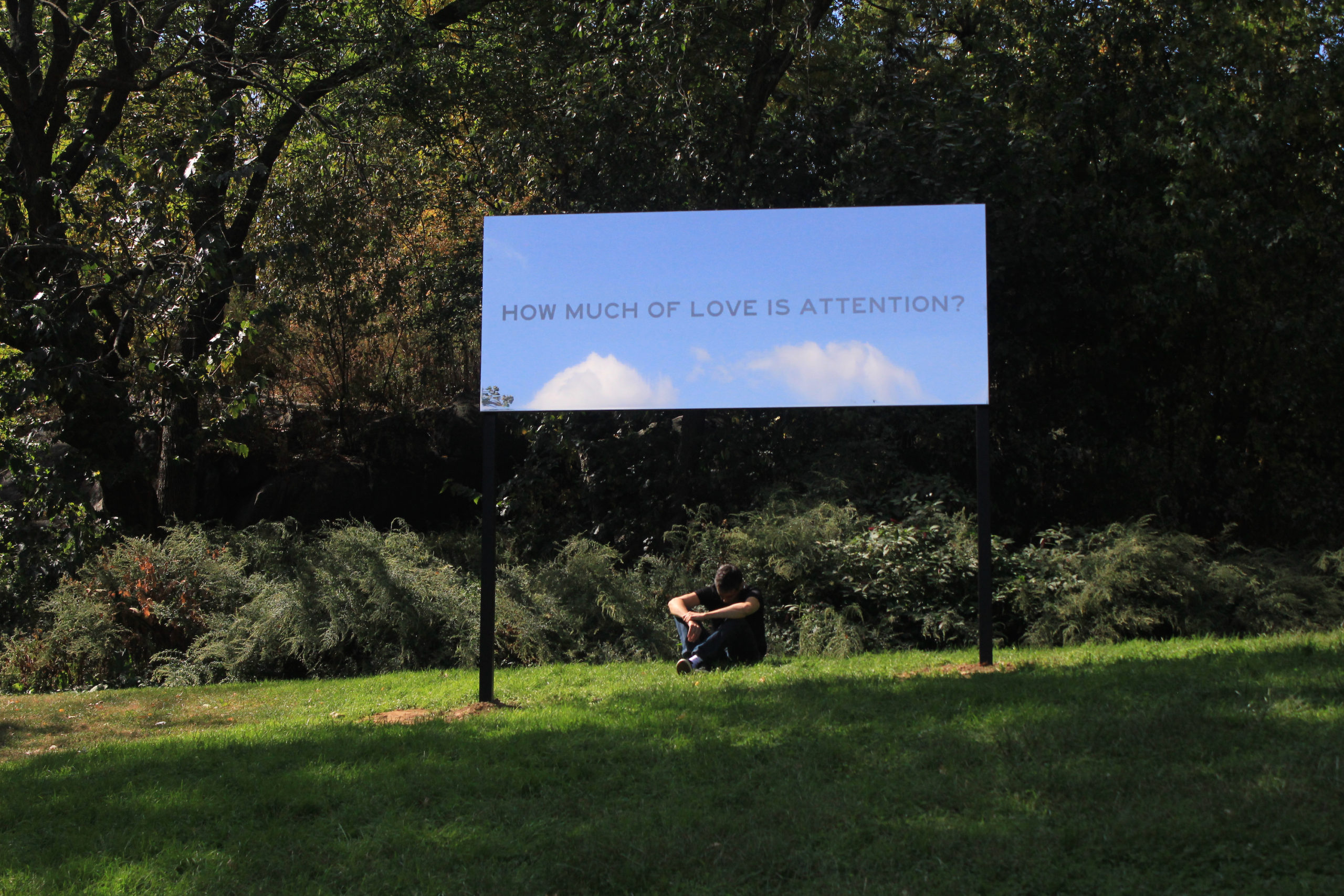
- Clock
I was born with a clock. No twin bells ringing as I made my grand entrance into this world—a silent clock. A black line that stretched from the pupil of my left eye to the edge of my brown iris, tilting just enough to make it look like time had stopped at exactly 5:25. Until five years ago, I believed that this line marked the time of my birth. My mother had told me this. Nobody could make me doubt the truth of this story. Nobody but her.
She noticed the line as we laid side-by-side on a hotel bed in Istanbul, catching up with family gossip and quietly sharing worries about my sister Mojgan, who was sleeping on the bed across from us, and whose chemo pills were sucking life out of her exhausted body.
“Haaaa,” my mother said nostalgically with her slight Azeri accent, as she squinted with an intensity that deepened the lines embracing her hazel eyes.
“There it is… that line in your eye!”
“Yes! My clock!” I said.
She was confused. I reminded her of the story she herself had told me. She chuckled. We were both amused that all the new-age astrological charts drawn in the San Francisco Bay Area based on the time and place of my birth had been lies.
2. Qismat
After I moved to the U.S., for many years, I celebrated my birthday on the anniversary of the Stonewall uprising at gay pride parades in San Francisco, where I lived most of my adult life. This lucky coincidence of birth, June 28th, made me feel gay and proud. It didn’t take long, however, to realize that the Budweiser-sponsored parades that became more and more corporate and white and less and less radical and fun, in the increasingly gentrified city that was no longer affordable, were not where I belonged. Even though I was born on the gayest day of the year and lived in the gayest city in America for two decades, I have carried a different history that makes belonging and loving in the gay imaginary thorny, like the roses my father used to plant in the small yard of a home I haven’t seen in thirty years. Perhaps it was the tyranny of geography that compelled me to leave Iran at the end of an eight-year war. Perhaps it was the interplay of accidents and coincidence. My mom would have called it qismat.
3. Green Vagueness
I was an accident. You could say that I owe my life to Islam. My mother, who grew up in a non-religious family and already had three children by the time she got pregnant with me, didn’t want another child. Besides, I was an aberration in Shah’s development plans. Population control was a part of Shah’s “white revolution” and a sign of Iran’s development and progress. Posters of smiling blond nurses holding up their index and middle fingers to signal “two” covered Tehran’s hospital walls and billboards: “Doe taa bacheh kaafiyeh!” (Two children are enough!). Those V shaped fingers would take on another meaning during another revolution in the late 1970s: The victory of the people over Shah’s tyranny.
Eftekhaar Khanoom, my mother’s best friend, a seyyed o olaad-e peyghambar—descendent of Imam Hossein and the prophet—begged my mother not to have an abortion and promised that she would raise the baby. By the time I was born, my mother became a practicing Muslim and forgot that she ever wanted an abortion. At the age of five, I would sit next to my mother in her private Qur’an lessons with Mr. Atashkaar. It was around that time that I had another accident and became nazar-kardeye Imamaa (looked after by the Shia Imams).
One cold winter day as I was playing on the frozen blue tiles around Eftekhaar’s deep howz (small pool), I fell in and almost drowned in the freezing cold water. That is when I saw the green man—my savior. A kind bearded man wearing a green turban and a green abaa, on top of the evergreen tree that stood tall next to the pool, stretching his hand towards me.
“Don’t be afraid my child. Take my hand and come out.”
I was scared. I took his hand.
It was my mother who pulled me out of the freezing water. I wailed.
“There was a green man, he took my hand…” I tried to tell my mother and Eftekhar khanoom as they washed my shivering body with warm water.
Eftekhaar khanoom slapped herself with both hands, cupped her face, and let out a joyful scream: “jaddam bachammo nejaat daad! Ghorboonet beram Hussein! bacham nazar kardeye Imamaast!” (“My ancestor recued my child! May I sacrifice my life for you, Hussein! My child is chosen and looked after by the Imams!”). Confused, I stopped crying and watched Eftekhar khanoom run around the house and scream jubilantly, “bacham nazarkardeye imamaast!!!”
Not too many years after that accident, as a communist kid who believed that science was the only truth, I buried that memory and covered it with a phrase in which I religiously believed: “deen afyoun-e toudeh haast” (Religion is the opiate of the masses).
Two decades later, when I told the story of the green man to a poet friend, his face lit up:
“That green man was Khidr. A pagan saint who lives in the trees near water and saves children!”
Sometimes, I wish that the kind green man would come to my rescue again.
4. Revolution
Being the youngest child meant that at age five I would sit next to my mother during her private Qur’an lessons with Mr. Atashkaar, a shy and pious young man who was a Qom seminary student. Eager to learn how to read, I devoured the children’s books about the prophets and Shiite Imams that Mr Atashkaar brought for me.
By the time I was in the fifth grade, the revolution was under way. The books that my sister Mojgan gave me, Marx in simple language for Children, Cuba in simple language for children, and illustrated books about dialectic materialism, replaced Mr. Atashkaar’s religious books. My mother, fearing that Mojgan would join the protests, would lock the door and hide the key in her bra. I was too young to join the street protests, but not too young to accompany my mother to Behesht-e Zahra— the large cemetery in the south of Tehran where thousands of protestors, killed by Shah’s soldiers, were transported from the streets to their graves. I would stand next to my mother and watch people shout “Allah o akbar!” as they carried the bodies of martyred young men and women on their shoulders.
My mother would weep, pray for the martyrs, and whisper under her breath, “I hope your mothers die before they see you like this.” I would squeeze her hand and pray to god that Mojgan would not end up on the mourner’s shoulders.
5. Shahrzad
I was ten years old when Shah left Iran. I was also ten when I fell in love for the first time. Her name was Shahrzad. Nothing like the Shehrazad in orientalist fantasies that appear in translations of the 1001 Nights. Ms. Shahrzad was my fifth grade English teacher. Yet she barely taught us any English from the textbook. Instead, she taught us about American imperialism, throwing in a few English words like ‘capitalism,’ ‘proletariat,’ ‘Bourgeoisie,’ and ‘socialism’ for good measure. She told us how Uncle Sam was stealing our oil and paying Shah with guns that killed our people. She told us about the oppression of the Iran-Nacional factory workers and the farmers. She taught us about revolution.
Ms. Shahrzad stood out among other teachers. Always in her simple buttoned-up shirt and jean pants, she walked into the classroom with an urgency and determination, as if there was no time to waste. She had a lot to teach us. She tied her long black hair back, like every militant chereek-e fadayee-e khalgh. Her stubborn big eyes commanded respect, but never fear. One morning as we lined up in the school yard, a rumor went around that the school principle had decided to fire Ms. Shahrzad for instigating students. That day, I refused to go to class and convinced others to join me in the strike. That day, I got in trouble and cried under pressure. That day, I led my first public protest.
By the time I was in the 6th grade, I was the leader of the leftist youth militia, Peeshgaam, in my new middle school, and Shahrzad was a student at the art college adjacent to my school on Rasht Alley. The only thing that separated us was a long wall covered with purple wisterias. I was the happiest communist kid, in love with an unattainable crush.
My love story didn’t last long.
One gloomy morning, as I was walking to school, I saw a woman jump down from the tall wall that separated Shahrzad’s college from my school. She fell, but quickly got up and started to run in my direction. It took me a minute to realize that the woman was Shahrzad. I called her name. She stopped and looked back at me with a fear I had never seen before in her eyes. Gasping for air, she continued to run. I stood there and watched as an Islamic Republic Revolutionary Guard in a green uniform chased her down the alley. They both disappeared in the busy main street. I prayed that the kind green man who had rescued me would come to Shahrzad’s rescue. He didn’t. I never saw Shahrzad again.
6. War
For eight years after losing Shahrzad, I got used to a life filled with red sirens that announced imminent air attack by Iraqi bombers. Like every kid in my high school, I learned to run to the shelter in the basement, always with a conflicted sense of fear and happiness. I feared that there was a chance that I would not live to hear the white siren. I feared that by the time the white siren went off from every corner of the city, announcing the end of the attack, a bomb or missile would shatter my loved ones’ flesh all over the rubble. But life went on. I would join other students as we cheered the cancelation of a quiz or a boring lecture, noisily ran down three flights of stairs, flirted with girls in the school basement, fell in love, and prayed to god that the Iranian anti-air craft weapons would deter the Iraqi F-14 jets and force them to drop their bombs on empty land in Tehran’s outskirts. But sometimes prayers or the kind green men did not deter the bombs. There was always another street or alley named after a martyr.
7. America
Somewhere between the end of the Iran-Iraq war and the beginning of the first Gulf war, I immigrated to the U.S.
Louise, the old white woman in whose mobile home I rented a room never shied away from her patriotic duty. Her son, a tall man in his 40s, would show up every morning to raise the flag. He would return before the sunset to bring it down, lest the flag was disrespected. That was my introduction to the exotic American traditions.
There is something strange about watching war from afar; Something strange about living in a war zone away from the war zone.
That night, Louise’s wrinkled face had turned red from anger. I wondered if she had waited until I got home from college to scream at the TV: “Why don’t we just push a button and nuke all these savages!”
I moved out the next day. She never gave me back my security deposit.
“We” killed “these savages” in the name of security in the first Gulf war, second Gulf war, and the “war on terror.” Life as a security deposit taken self-righteously.
8. Prayers
Aisha looked away from the rocks she had thrown on the board, and with worried eyes she said, “Girl, you should visit your sister and your mother soon.”
After seven years of grad school in the bay Area, we had ended up 30 minutes away from each other in two different Ivy League schools on the East Coast. In our twelve years of friendship, Aisha had never looked so worried when she consulted with the Santos about my troubles.
I clutched the glass of rum.
“Why?”
Trying to make sense of what Elegua was telling her, she frowned and said, “Two bodies and one grave.”
We sacrificed animals in our backyards, gave nazri, burned esfand, lit candles; prayed to Allah, to Elegua, to Santa Marta. We prayed to defer the inevitable. Some truths need not to be told.
9. Cancer
Mojgan was diagnosed with stage IV breast cancer a year after the U.S. tightened the sanctions against Iran in 2009. Almost a decade before that, the U.S. sanctions on Iraq had killed 500 thousand children under the age of five. Now it was Iran’s turn. “Crippling sanctions.” Euphemism for death. Cancer medicine became hard to find, even in the black market.
When I was in the fifth grade and she was in the second year of high school, Mojgan gave me a book about the Cuban revolution. There was a cartoon of a Cuban soldier, maybe Fidel, on the first page of the book, staring stubbornly at the reader: “because we love life, we fight for it to death.”
Mojgan loved life. She fought for it against all odds, even as the deadly sanctions made cancer treatment impossible. Even the U.S.-Israeli virus that shut down all nuclear technology computers did not deter her will to live. When Stuxnet shut down all computerized radiotherapy machines, Mojgan continued treatment in a hospital with an outdated non-computerized radiotherapy machine. Miscalculations of the flesh are devastating. The old machine burned lungs. But she did not give up hope till the day she died.
10. Love poem
I wrote this poem about war when sanctions were slowly killing the Iraqi people. Nineteen years later, I still write about war. I still write about sanctions,I still write about love. “Time is out of joint.”
Why do I write about war
when halva tastes so sweet
in our multicultural neighborhood café
congested with dot coms
and scent of chai
and sound of music
and delightful conversations about spiritual matters?
Why do I write about war
when freedom keeps
the fire going yellow
and red
like puss and blood
in a green woman’s torch
Liberty
watching over borders
in a “world without borders”
Maybe this is not a dream
or a tale of love
not a song for meditation
and no
bellies stuck to the bone cannot belly dance
Is there anything
but bombs in the black eyes
of the children you once captured
exotic children
on the cover of National Geographic
I still write about war
and I still yearn
to write love poems
love poems
between bullets and blood
love poems
between detention and welfare cuts
love poems
between the sanctions and props 21 and 22
I still yearn to write love poems
I still
love
love
love
beyond your hate
is that my three strikes
America
11. Truths
Mojgan often hid the truth about her cancer to protect my mother. Every surgery, every hospitalization was a travel story. Some truths are not to be told.
My mother, who could not bear to see her child die before she did, prayed to god, to Imam Reza, to Hazrat-e Fātemeh, and to Imam Hossein to take her life before Mojgan’s.
Some prayers are answered. Others are only deferred.
My mother died of a heart attack in her white chador namaaz and between her prayers. Six months later, Mojgan died of cancer.
I wish I had stopped the clock in that hotel in Istanbul where my mother laughed at my clock story. I wish I had stopped the clock a year later when Mojgan and I saw each other to mourn together in the same hotel. I wish that I had stopped the clock before Mojgan’s body gave in to cancer two months after we cried and laughed between memories of our childhood and our mother in that hotel.
Two bodies and one grave. Some truths need not to be told. And other truths—the ones that we make up to keep our loved ones from hurting—they are alibis, not lies. These truths—we know them. We live them. We live with them. We have no compulsion to confess them. Those tacit subjects that sometimes hurt and sometimes give us joy in their secrecy. Sometimes they devastate us. Like queerness. Like cancer. Like death. They are deferred.
Image Credits: RSLabSima Shakhsari is an Assistant Professor in the Department of Gender, Women, and Sexuality Studies at the University of Minnesota. Shakhsari was previously an Assistant Professor in the Department of Women’s and Gender Studies at Wellesley College, a Mellon Postdoctoral Fellow at the University of Pennsylvania Humanities Forum (2015-16), and the teaching and research Postdoctoral Fellow in the Women’s, Gender, and Sexuality Program at the University of Houston (2010-12). They earned their PhD in Cultural and Social Anthropology from Stanford University and have published in Feminist Review, Sexualities, The International Journal of Middle East Studies, Journal of Middle East Women’s Studies, Transgender Studies II, and Queer Necropolitics. Their book manuscript titled Politics of Rightful Killing: Civil Society, Gender, and Sexuality in Weblogistan (Duke, Fall 2019) provides an analysis of Weblogistan as a site of cybergovernmentality, where simultaneously national and neoliberal gendered subjectivities are produced through online and offline heteronormative disciplining and normalizing techniques.







